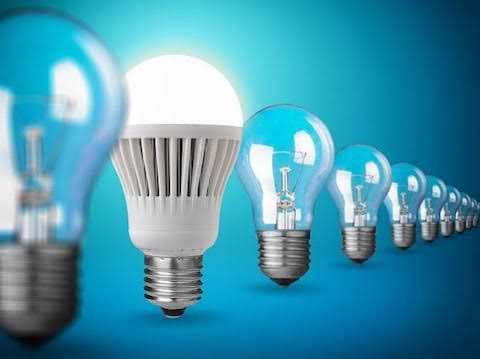To encourage energy efficiency in all homes, the Indian government launched the UJALA (Unnat Jyoti by Affordable LEDs for All) scheme, commonly known as the LED-based Domestic Efficient Lighting Programme (DELP), in May 2015. The Energy Efficiency Services Limited (EESL) of the Union Ministry of Power, DISCOM, and Public Sector Undertakings of the Government of India collaborated on the UJALA Scheme.

The government wants to replace 77 billion conventional bulbs, CFLs, and 3.5 billion street lights with LEDs as part of the UJALA programme in order to save 85 lakh kWh of electricity and 15,000 tonnes of CO2.
Several research studies (ELCOMA, 2013, NITI Aayog, 2012, PwC, 2011) have suggested that lighting accounts for between 18 and 27% of all domestic electricity demand. A PwC study estimates that there were one billion lighting points in Indian households in 2011. Of these, 46% were CFLs and 41% were tube lights.
Additionally, only 0.4% of the total lighting points used LED bulbs, with incandescent lights making up about 13% of the total lighting points. The analysis also calculated that the combined electricity use from all of these lighting sites was almost 27% of the total household electricity consumption, assuming a consistent annual use of 1,580 hours for each lighting point.
The high cost of LEDs makes it difficult to deploy such energy-efficient lighting systems, even though domestic LEDs consume around 75% less energy and last 25 times longer than incandescent lights.
To make energy-efficient home lighting solutions accessible to everybody, the government introduced the UJALA programme. According to the plan, the price of the LED bulbs, which were sold by the government-run EESL, was reduced from Rs. 310 (US$ 4.22) in 2013 to Rs. 65 (US$ 0.8) in 2016.
The 'demand aggregation-price crash concept,' which involves leveraging economies of scale to reduce costs, underlies the UJALA programme.
For a large-scale LED lamp purchase in 2015, EESL invited manufacturers to submit open bids and paid for all upfront costs. In order to develop a value chain and sign contracts for the public distribution of these LED bulbs under the UJALA initiative, the company also made contact with state governments and electricity production and distribution companies.
This industry consolidation caused a sharp decrease in LED retail prices, which reached as little as US$ 0.8 (Rs. 65) in 2016.
Hope you like my answer!